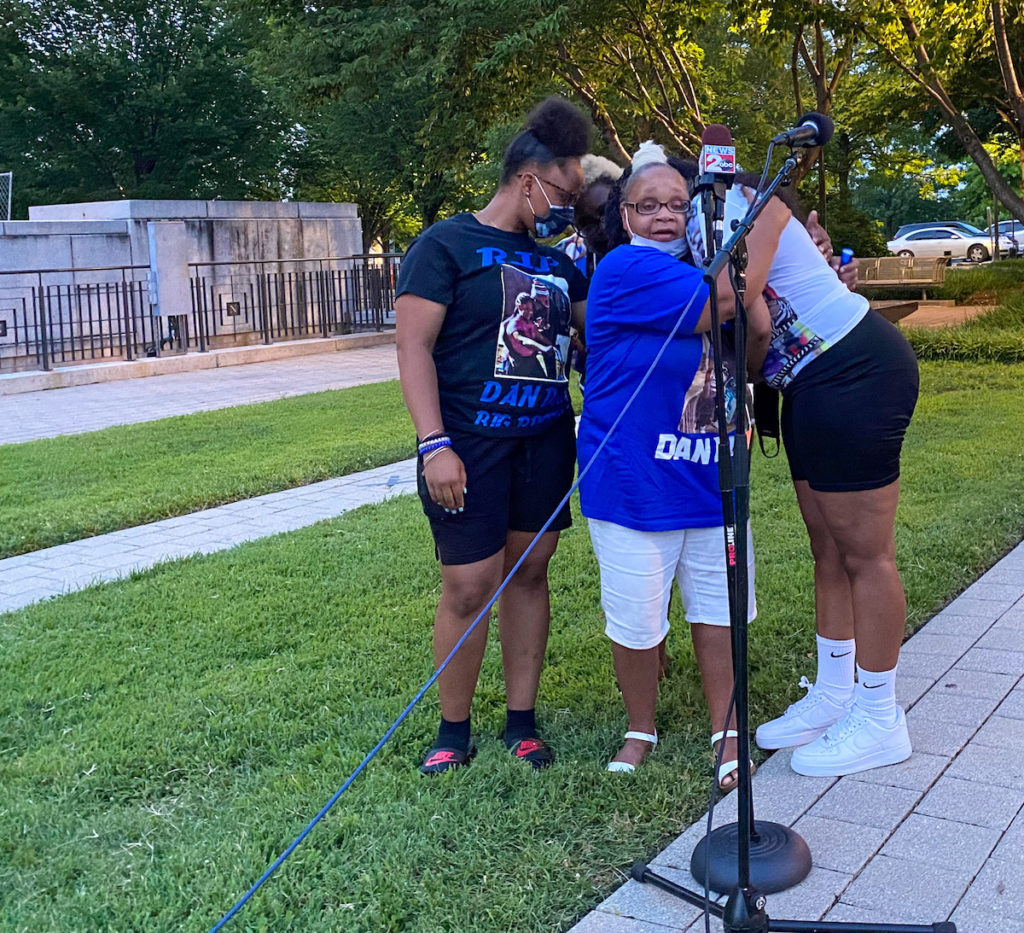
Nashville’s Metro Council has approved a $2.25 million settlement for the family of Daniel Hambrick. The 25-year-old Black man was killed in 2018 while running away from a white police officer while carrying a gun.
It’s the largest payout for a local police misconduct lawsuit since at least 2012. But the city’s lawyers worried taking the case to trial could have cost even more.
More: Learn more about the case in our podcast, Deadly Force
Nashville has already spent more than $140,000 on this case, according to a legal analysis from city lawyers. And Metro’s law department estimates that a trial and appeals could add another million dollars in attorney’s fees.
Metro Legal doesn’t think there’s proof that Hambrick’s civil rights were violated. His family’s lawsuit argues that the Metro Nashville Police Department’s training and culture led Officer Andrew Delke to pull his trigger during the foot chase in 2018.
But it says juries are unpredictable. And that losing a case like this could mean a payout of up to $15 million.
“Given the uncertainty of going to trial, the potentially large jury award, and the costs Metro will incur, the Department of Law recommends settling this lawsuit,” attorneys wrote in their analysis. “There is no admission of fault or liability in the settlement, and the settlement will have no impact on the pending criminal case.”
Delke has been charged with first-degree murder for shooting Hambrick and is scheduled to stand trial in July. He has pleaded not guilty.
The proceedings were supposed to begin a year ago but have been postponed several times, due to scheduling conflicts and the COVID-19 pandemic.
Delke’s attorney, David Raybin, has twice asked a judge to move his client’s trial out of Nashville, arguing that local reporting and protests against police last summer have biased the jury pool. The court has denied his request both times.
Delke’s case is unprecedented for multiple reasons. It’s the first murder trial for an on-duty killing by a police officer in Nashville’s history. And the civil settlement also dwarfs recent payouts for police misconduct lawsuits.
Since 2012, the city of Nashville has paid about $1 million for claims against police officers, spread across more than 20 complainants. That cumulative total is about a million dollars less than what Metro is paying the Hambrick family. They asked the city for $30 million in their 2019 lawsuit.
But it doesn’t come close to the historic $27 million awarded to George Floyd’s family last week in Minneapolis. That announcement came in the midst of jury selection for the criminal trial of Derek Chauvin, the officer who was captured on video his knee on Floyd’s neck for nearly nine minutes. In that case, the officer’s attorney has asked a judge to postpone the trial, fearing that the settlement will sway potential jurors.
In Nashville, however, Delke’s attorney says the civil settlement will have no bearing on his client’s criminal trial.
The attorneys for the Hambrick family noted that $2.25 million was “record-breaking for Nashville” and expressed appreciation for the “modest accountability.” But they also called it “paltry” in comparison to other high-profile cases, like the killings of Floyd, Breonna Taylor in Louisville ($12 million) and Walter Scott in Charleston ($6.5 million).
They thanked local activists and organizations “for putting in the work to achieve meaningful police accountability in Nashville,” including the publishing of the Driving While Black report in 2016, which uncovered racial disparities in traffic stops, and the passage of a local amendment in 2018 to create the Community Oversight Board. Police reform advocates garnered thousands of signatures to get the measure on the ballot in the days after Hambrick was killed.
“We can all draw our own conclusions regarding what this settlement says about how much Nashville values black life,” attorneys Joy Kimbrough and Kyle Mothershead wrote in a statement. “And while we are less than inspired by the value that Nashville has placed on Daniel’s life, we remember the pivotal role that Daniel’s murder played in the passage of the Community Oversight Board referendum. For that, we are forever grateful.”
Samantha Max is a Report for America corps member.


